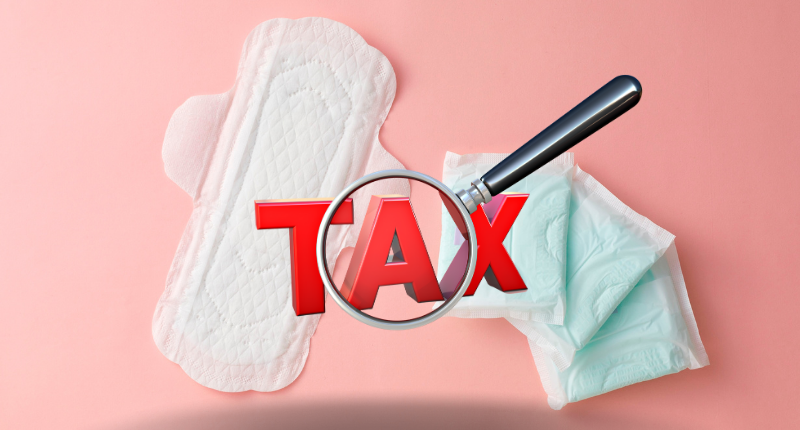A legal battle has emerged in Pakistan as Mahnoor Omer, a young lawyer, challenges the country’s tax on sanitary pads, calling it an unjust financial burden on women. Omer, 25, is taking on the government in her case against the “period tax,” arguing that sanitary pads—necessary for the health and well-being of millions of women—are taxed at rates that make them unaffordable, especially for those in rural areas.
As per media reports, the case, Mahnoor Omer v. Federation of Pakistan, recently had its first hearing at Lahore’s high court, marking a significant moment for Omer, who has swiftly moved from relative obscurity to becoming an activist. “Why are sanitary pads taxed as luxury items when they are a basic necessity?” Omer asks, pointing to a sharp contrast with other essential goods like milk and cattle semen, which are exempt from tax.
According to Unicef, taxes on sanitary pads can add up to 40% of their retail price, making them out of reach for many women. In rural areas, only 16.2% of women use sanitary pads due to high costs, while alternatives such as rags or cloths are commonly used, leading to hygiene and health issues.
Omer’s legal efforts are backed by Mahwari Justice, a youth-led organization focused on menstrual health and rights. Founded after the 2022 floods, when women in rural areas were forced to use unsafe substitutes due to the lack of affordable sanitary products, Mahwari Justice has gained significant support. They launched a petition that has garnered over 4,700 signatures to support Omer’s case.
One of the key arguments made in the case is the economic and social disadvantage that the high cost of menstrual products causes. Ahsan Jehangir Khan, a fellow lawyer working on the case, argues that the expensive prices for sanitary products amount to indirect gender discrimination. “If women are taxed for a biological function, that means they are being robbed of their dignity,” he says.
The issue extends beyond affordability—research from Mahwari Justice shows that one in five girls in Pakistan misses school during menstruation, resulting in an entire academic year lost. Many young girls also report feeling embarrassed about their periods, with almost half of them never receiving education about menstruation before experiencing it.
In rural Pakistan, alternatives such as rags and cloths are often used, doubling the risk of infections and long-term reproductive health complications. Omer hopes that a favorable ruling in her case would not only make sanitary pads more affordable but also begin to change societal attitudes toward menstruation, which remains a taboo topic in the country.
“The problem isn’t the periods themselves, but rather the silence about them,” Omer says. She hopes her case will spark a wider conversation about menstrual health and the need for affordable, accessible products for all women.
Separately, Alisha Shabbir, a resident of Karachi, also moved the Sindh High Court against what is commonly called the ‘period tax’, citing the FBR, Ministry of Law & Justice, Excise & Taxation Department of Sindh, provincial health secretary and others as respondents.
In response, the Sindh High Court issued notices to the Federal Board of Revenue (FBR) and other respondents on a petition challenging the sales tax on women’s sanitary napkins.
Discover more from Brackly News
Subscribe to get the latest posts sent to your email.



